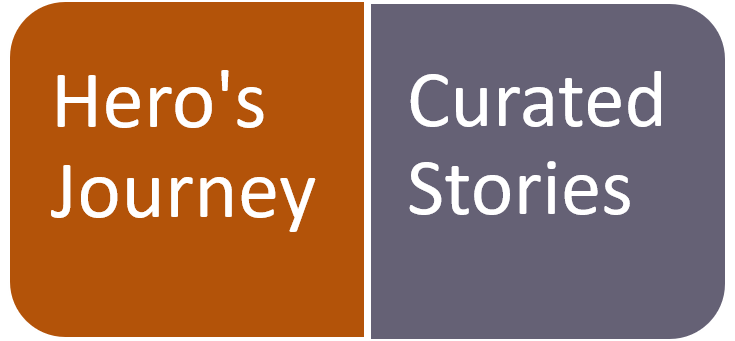The Consulting Pyramid Part 1
Oftentimes, when I meet with families and prospective applicants, I notice that students underestimate how much power they have to shape their own stories and take control of their journey of self-discovery early in high school. This brings to mind a quote by Chilean-American writer Isabel Allende: “You are the storyteller of your own life, and you can create your own legend, or not.”
This quote is a valuable reminder for students navigating (or about to begin) the college application process—not just to craft a narrative, but to lean into your interests, discover what truly matters to you, and pursue it with purpose.
As college admissions have become more competitive, with declining acceptance rates and increasingly nuanced application requirements, students must adopt a strategic approach to stand out among a sea of qualified applicants. As a parent, you may wonder: What can my child do to distinguish themselves in this process? PCC provides a comprehensive, three-tiered consulting framework designed to guide students through every stage of the process: building essential skills, defining their “genius zone,” and putting together polished applications.
In Part 1 of this two-part series, we’ll dive deeper into skill building and the genius zone admissions strategy, demonstrating how each empowers students to navigate the process with clarity and confidence. And stay tuned for Part 2, where we’ll take a closer look at how students can prepare to complete the application process in a timely manner, beginning with their personal statement.
Skill Building
The foundation of the consulting pyramid is skill building, where students aim to develop their critical thinking, self-awareness, associative, writing, verbal skills and many others. Cultivating these skills drives students’ personal growth while preparing them to articulate their experiences in ways that highlight key aspects of their character and demonstrate their potential when it comes time to apply for college.
Skill building is all about establishing the foundations to maximize student potential. For example, developing one’s self-awareness not only helps students see themselves more clearly but empowers them to act on their insights and pursue what is most meaningful to them. This could mean identifying a passion for environmental science and starting a recycling initiative at their school or recognizing a talent for mentoring and creating a peer tutoring program. The better a student understands their own character, the more confidently they will be able to convey their interests and craft cohesive personal essays for their applications down the road.
Critical and associative thinking skills are equally important, as they enhance students’ ability to analyze, synthesize, and connect information—skills that are vital for academic success and real-world problem solving. Critical thinking enables students to assess complex materials, tackle difficult problems, and form logical arguments, while associative thinking allows them to draw valuable connections between different subjects and ideas. Together, these skills empower students to excel academically, engage meaningfully with the world, and continue learning throughout their lives.
Similarly, developing strong writing skills has lifelong benefits for organizing your thoughts, expressing yourself creatively, and communicating with the world around you. By practicing writing, students become more comfortable sharing their thoughts and feelings—a skill that becomes especially important as they grow older and engage in activities like oral presentations and public speaking. Confidence in self-expression can also prove invaluable during college admissions interviews, enabling students to articulate their experiences fluidly and showcase their authentic interests. By writing just a few hundred words a day, students can improve their verbal and communication skills, benefiting them through high school, college, and beyond.
“Genius Zone” Admissions Strategy
You may find yourself wondering: how can my student stand out among so many other well-qualified applicants? The answer lies in crafting a coherent narrative across all aspects of the application—an application persona—that is both compelling and easy to understand. This is where the second tier of the consulting pyramid comes into play, as students begin developing their “genius zone.”
The genius zone is an organizing principle that helps guide students in decision-making throughout high school, functioning as both a desired reputation and a dynamic action plan that propels them forward. You can also think of it as a single sentence you want an admissions officer to remember you by when presenting your application to the committee. This sentence (or two) does not need to explicitly outline every detail about you but should serve as a concise synthesis supported by a strong foundation. Ultimately, your genius zone is developed by deepening and integrating your existing interests—that is, authentically cultivating who you are by leaning into your passions and connecting the dots between them.
Finding Your Genius Zone: Swimming Toward the Blue in a Sea of Red
Another metaphor for the genius zone is that, in an oversaturated sea of red applicants, individuals can stand out by swimming toward the wide-open blue ocean. In other words, while most college applicants cannot completely avoid the sea of competition, you can differentiate yourself from your peers by swimming away from the crowd. There is a great book called the Blue Ocean Strategy by W. Chan Kim and Renee Mauborgne that would be useful to read.
Let’s take a look at an example of how to discover your genius zone. Meet Sydney. Sydney is a 9th grader and performs well in rigorous courses. She is intellectually curious and interested in exploring the intersections of business and environmental science. She has expressed a desire to one day build a renewable energy startup that develops affordable solar panels for households and small businesses. Outside of school, she spends significant time playing soccer (goalie), composing music, and organizing local beach cleanups. She also enjoys reading fantasy novels and writing monthly articles for her Substack on how to live more sustainably.
Imagining a two-part Venn diagram is a good way to start envisioning Sydney’s genius zone. Sydney may not wind up as the top entrepreneur or environmental scientist in a selective college’s sea of applicants, but she may be one of the strongest applicants interested in studying both. Because this combination of interests is less common, it begins to provide leverage. Sydney is swimming toward the blue ocean.
And remember: the genius zone doesn’t need to explicitly capture every aspect of a student’s character. In Sydney’s case, her desire to build a renewable energy startup, organize beach cleanups, and explore sustainable practices in her Substack articles all offer support and contribute to the story she’s trying to tell. However, her musical interests and athletic abilities may ultimately get lost in translation.
Given what we know about Sydney so far, an initial genius zone summary might look something like this: I’m an eco-entrepreneur with a passion for storytelling—whether organizing beach cleanups, researching sustainable practices for my Substack, or composing symphonies inspired by Howard Shore’s epic soundtracks, I’m all about creating green solutions and a harmonious future.
This description is effective for several reasons. It’s an aspirational vision that highlights Sydney’s commitment to environmental sustainability and entrepreneurship, her leadership, and her creativity. The mention of researching sustainable practices for her Substack emphasizes Sydney’s ability to blend analytical research with her literary skills, while composing symphonies inspired by Howard Shore’s soundtracks showcases her artistic talent and musical ambition. Imagine an admission officer summarizing a student using this genius zone—it would be compelling and memorable.
To get started on discovering your genius zone, try answering the following questions:
- What 3-5 character strengths, values, or personality traits best describe you? Write out a specific experience that illustrates each.
- What are 2-3 primary academic interests or talents? Describe an experience that led to each interest or helped you develop that talent.
- List 2-3 primary extracurricular interests or talents. Describe an experience that led to each interest or helped you develop that talent.
- What do you like to read, watch, and listen to (for school and/or just for fun)?
- What other hobbies or experiences have been meaningful to you? Why?
- Do you have any personal or career goals for your future?
- How has your family background or other socio-economic factors (including race, ethnicity, family income, gender, sexuality, religion, or geography) influenced anything mentioned above?
- Who do you admire? Why?
The next step is writing 1-2 sentences that describe how you want to be remembered by an admissions officer. Use a combination of interests, talents, traits, and/or experiences from your answers to the questions above. Remember that you want it to be easily understood and compelling. The most impactful genius zones often encompass 1) a combination of interests, talents, traits, or experiences that are not commonly found together, and 2) specificity. The more specific your genius zone is (while remaining broad enough to include the most meaningful aspects of who you are), the better.
Developing Your Genius Zone: Exploration, Reflection, and Action
Your initial genius zone is a blueprint for developing your own interesting questions and exploring creative possibilities. It should lead to deep dives into the subjects you love and prompt serious personal reflection. Some great ways to further your expertise and build foundational knowledge include developing a purposeful independent reading (watching and listening) list, posing interdisciplinary questions about how your passions intersect, and taking action to confirm current interests or pivot into new ones. For Sydney, this could look like joining the Young Entrepreneurs Club at school, organizing a speech by a climate activist at her Sustainability Club, setting aside time to read Eric Ries’s The Lean Startup and watch Al Gore’s An Inconvenient Truth, and designing an independent business project with a focus on sustainable innovation for her solar panel startup.
While this may seem like a lot to take on, it’s important to remember that deepening your expertise doesn’t require you to master everything at once. Instead, focus on cultivating a clear sense of your passions and how they connect, allowing for gradual growth and exploration. Ultimately, your genius zone will serve as a guiding framework as you pursue your interests throughout high school, empowering you to define what gives your life meaning and purpose. By the time applications roll around, you’ll have woven a compelling narrative that showcases your unique passions and purpose.
Lastly, it is important to remember that developing and mastering the above skills is central to developing your “Genius Zone.”
Conclusion
For more than 14 years, we’ve been helping students navigate the application process, supporting them in building foundational skills so that when it’s time to apply for college, they’re fully prepared to present their authentic selves in a compelling way. By focusing on skill-building and crafting a compelling genius zone, students prepare themselves to tackle the admissions process (which we will cover in Part 2) and lay the groundwork for future academic and professional success. These strategies not only help students stand out in a competitive applicant pool but also empower them to embrace their passions, refine their talents, and articulate their ambitions. Ultimately, this journey is about more than just gaining college acceptance—it’s about cultivating a deeper sense of self, setting meaningful goals, and discovering lifelong interests.
Our team is ready to support you as you embark on your application journey. Request a consultation today!
If you’re ready to dive deeper into your college application, check out the guide that our college admissions experts put together to help you navigate all the criteria admissions committees look at.


.png)
